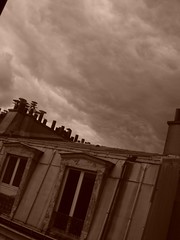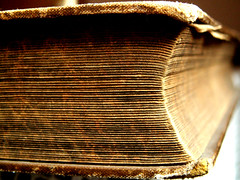A writer friend of mine asked me recently how I keep going when things aren’t going well, and what I do when I become blocked.
The most useful thing I do when I feel empty is read. I turn to authors whose work I want to emulate: Virginia Woolf, Anne Carson, Assia Djebar, Joan Didion, for example. I try to feel their rhythms and learn from what they do. I also read for content, and try to learn more by following a trail of bibliographies and footnotes. Lately (and weirdly, for me), I’ve been reading anthropologists. Even though these books look nothing like what I write or want to write, a fresh perspective and a hit of learning is always good for a frustrated writer.
Next, when a text isn’t working, I’ll try something formal to shake it up: I change voice from first- to second-person (two of the articles I’m most proud of are written in the form of letters), I change tense, or cut a text up into very small pieces and start rearranging. Often, I do this literally, sitting on the floor with tape and scissors and paper fragments. Proust’s archived manuscripts are apparently full of pasted-in bits that fold out in all directions. It’s a time-tested technique, and there’s something about physically cutting something up that works differently for me than cutting and pasting on screen. It’s easier to see the crap for what it is, and to tease out the good stuff.
Finally, if I have nothing to write about, I do something. I travel, I go in search of something (I’ve written about visiting the Paris apartment building Šimaitė lived in and travelling to an Iowa town named after an Algerian national hero). The journey is a classic frame, and it works for me.
My next trip will be to Siberia to find the village where my grandmother was exiled for seventeen years. What do I hope to find? If nothing else, the sky she saw and the earth she walked on. That alone will give me something to write about.
[Photo by austinevan]



